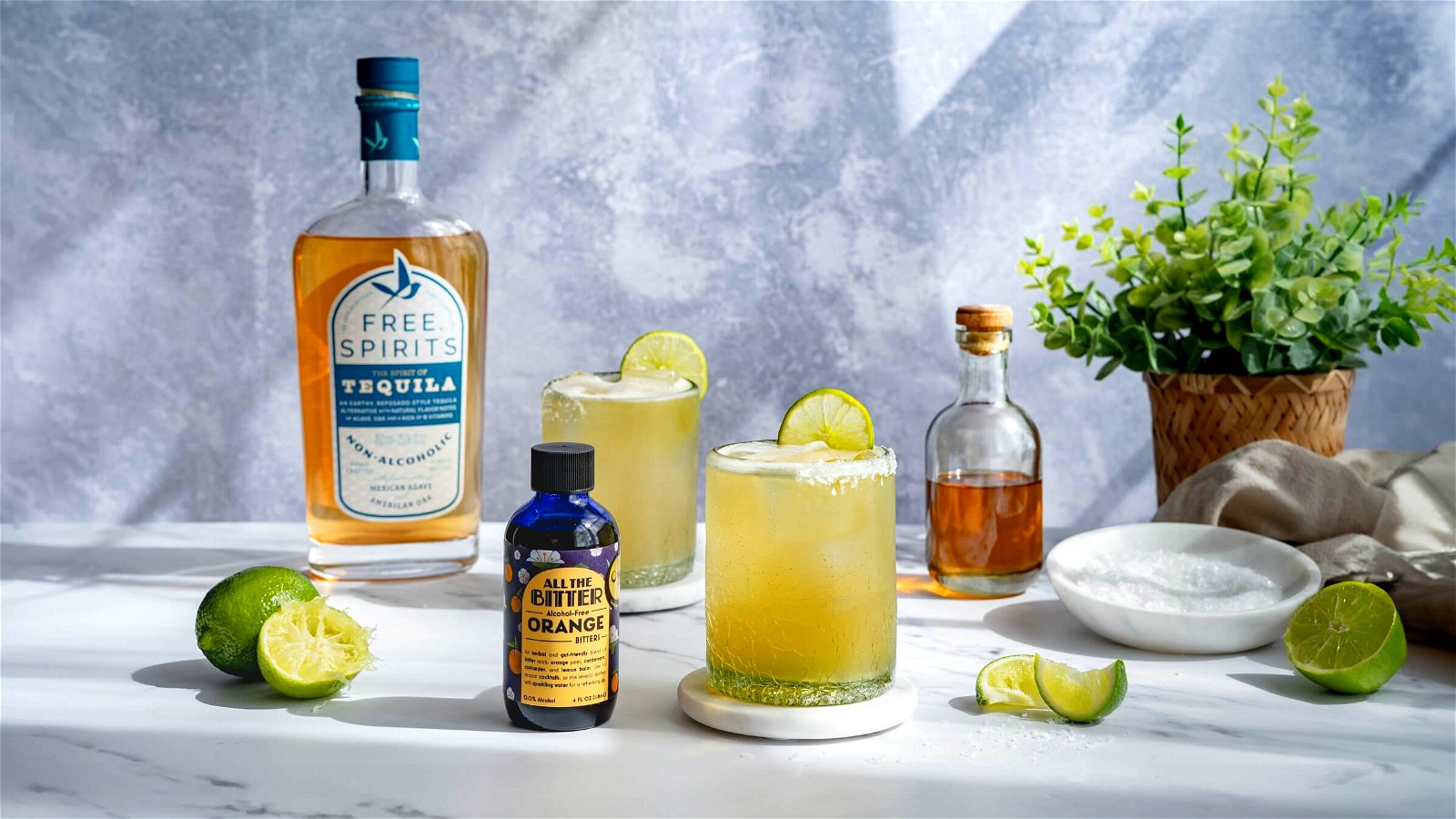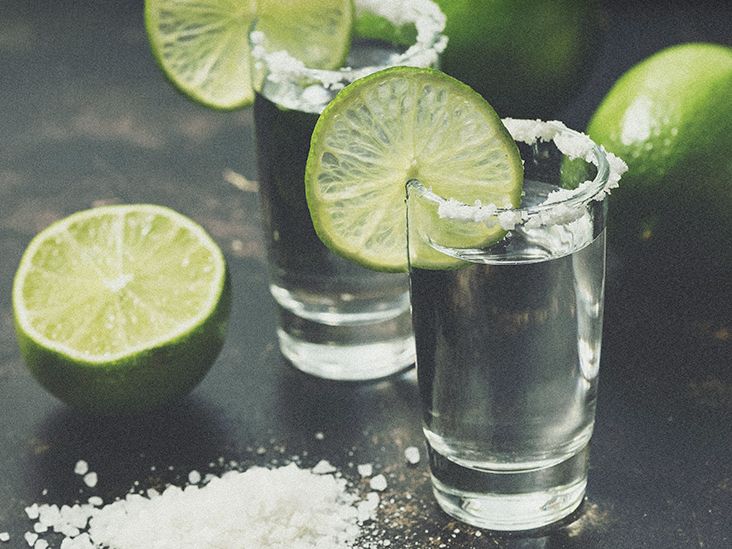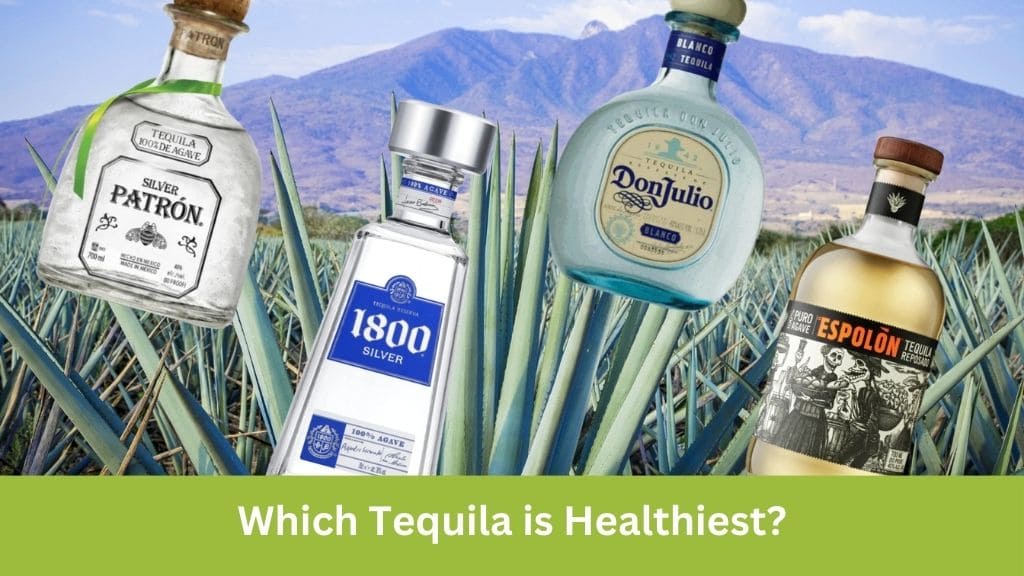Tequila, derived from the blue agave plant, has long been cherished as a spirit enjoyed in various forms. However, with the growing interest in health and wellness, many individuals are now curious about which tequila options might be the healthiest. In this comprehensive guide, we’ll delve into the various factors that determine the healthiness of tequila, including its ingredients, production methods, and potential health benefits.
Tequila Ingredients

The healthiness of tequila begins with its ingredients, which primarily consist of the blue agave plant. Let’s delve deeper into what these ingredients entail and how they contribute to the overall health profile of tequila.
Blue Agave: The Heart of Tequila
The blue agave plant, scientifically known as Agave tequilana Weber, is the primary ingredient in tequila production. This succulent plant, native to Mexico, serves as the source of the sweet and flavorful juice used to create tequila.
Nutritional Composition
Blue agave is rich in various nutrients, including:
- Inulin: A type of dietary fiber found in the agave plant, inulin has prebiotic properties that promote gut health by stimulating the growth of beneficial bacteria in the digestive tract.
- Agavins: These natural sugars found in agave have a low glycemic index, meaning they have a minimal impact on blood sugar levels. This property makes agavins potentially beneficial for individuals with diabetes or those seeking to regulate blood sugar levels.
- Polyphenols: Blue agave contains polyphenolic compounds with antioxidant properties, which help protect cells from oxidative damage caused by free radicals.
Processing the Agave
To extract the sweet juice from the blue agave plant, it undergoes a process known as “jima.” During jima, the spiky leaves of the agave are removed, leaving behind the core, or piña. The piñas are then harvested and cooked to convert the starches into fermentable sugars, which serve as the basis for tequila production.
Differentiating Between 100% Blue Agave and Mixed Tequila
While tequila must legally contain at least 51% blue agave to be labeled as such, there are two primary types of tequila based on agave content:
100% Blue Agave Tequila
Tequila labeled as “100% agave” or “100% blue agave” indicates that it is made exclusively from the fermented sugars of the blue agave plant. These tequilas are often regarded as the purest and highest quality options, as they do not contain any additional sugars or additives.
Mixed Tequila
Mixed tequila, also known as “mixto,” contains a blend of fermented agave sugars and other ingredients, such as cane sugar or corn syrup. While these tequilas may still offer an enjoyable drinking experience, they may lack the purity and health benefits associated with 100% blue agave tequila.
Health Considerations
When it comes to the healthiness of tequila ingredients, opting for tequilas made from 100% blue agave is generally recommended. These tequilas offer a purer and more authentic flavor profile, with potential health benefits derived from the natural compounds found in the agave plant. Additionally, avoiding tequilas with added sugars or additives can help minimize potential negative health effects associated with excessive sugar consumption.
Production Methods and Health Considerations
The production methods employed in crafting tequila play a significant role in determining its healthiness. Let’s explore how different production techniques can impact the nutritional content and overall health profile of tequila.
Traditional Production Methods
Tequila produced using traditional methods often prioritizes preserving the natural qualities of the agave plant while minimizing the use of additives and artificial flavors. These methods typically involve slower and more artisanal processes that enhance the tequila’s flavor and potentially its health benefits.
Slow-Roasting Agave
In traditional tequila production, the agave piñas are slow-roasted in stone or brick ovens, a process known as “horno.” This slow-roasting technique allows the agave’s natural sugars to caramelize slowly, resulting in a richer and more complex flavor profile without the need for additional sugars or additives.
Crushing and Fermentation
After roasting, the cooked agave piñas are crushed to extract the sweet juice, which is then fermented to produce alcohol. Traditional methods often involve natural fermentation processes, allowing wild yeast present in the environment to initiate fermentation. This natural fermentation may contribute to the development of unique flavors and potentially beneficial microbial cultures in the tequila.
Industrial Production Methods
Industrial tequila production, on the other hand, often prioritizes efficiency and consistency over traditional craftsmanship. These methods may involve faster processing techniques and the use of additives to achieve desired flavor profiles, potentially compromising the healthiness of the final product.
High-Pressure Autoclaves
In industrial tequila production, agave piñas may be cooked in high-pressure autoclaves instead of traditional ovens. While this method speeds up the cooking process, it may not allow for the same depth of flavor development as slow-roasting in traditional ovens.
Additives and Processing Aids
Industrial tequila production may also involve the use of additives and processing aids to enhance flavor, appearance, and shelf stability. These additives can include sugars, artificial flavors, and colorants, which may detract from the tequila’s purity and healthfulness.
Health Considerations
When it comes to health considerations, traditional production methods are often favored for their potential to preserve the natural qualities of the agave plant and minimize the use of additives and artificial ingredients. Tequilas produced using traditional methods may offer a purer and more authentic drinking experience with potential health benefits derived from the agave plant’s natural compounds.
Minimizing Additives and Artificial Ingredients
Tequilas produced using traditional methods are less likely to contain additives and artificial ingredients that may have negative health effects. By opting for tequilas crafted with traditional techniques, consumers can enjoy a more natural and potentially healthier drinking experience.
Preservation of Nutritional Content
Traditional production methods may help preserve the nutritional content of the agave plant, including its fiber, antioxidants, and other beneficial compounds. These natural nutrients can contribute to the overall health profile of tequila and may offer potential health benefits when consumed in moderation.
Potential Health Benefits of Tequila

Tequila, when consumed in moderation, may offer several potential health benefits attributed to its unique composition and the presence of certain compounds derived from the blue agave plant. Let’s explore these potential health benefits in more detail:
Antioxidant Properties
Tequila contains polyphenolic compounds, such as flavonoids and phenolic acids, which possess antioxidant properties. These antioxidants help neutralize free radicals in the body, thereby reducing oxidative stress and inflammation. By protecting cells from damage, antioxidants may lower the risk of chronic diseases like heart disease, cancer, and neurodegenerative disorders.
Digestive Benefits
The agave plant, from which tequila is derived, contains inulin, a type of soluble fiber known for its prebiotic effects. Inulin serves as food for beneficial gut bacteria, promoting their growth and supporting a healthy balance of microorganisms in the gut. By enhancing gut health, inulin may improve digestion, alleviate constipation, and reduce the risk of gastrointestinal disorders.
Potential Blood Sugar Regulation
Research suggests that agavins, a type of natural sugar found in the agave plant, may have beneficial effects on blood sugar levels. Unlike sucrose and other sugars, agavins have a low glycemic index, meaning they cause a slower and steadier increase in blood sugar levels. This property makes agavins potentially suitable for individuals with diabetes or those seeking to manage their blood sugar levels.
Weight Management
Tequila is a low-calorie spirit, containing fewer calories per serving compared to other alcoholic beverages like beer or wine. Additionally, the presence of inulin, a type of soluble fiber, may promote feelings of fullness and satiety, potentially reducing overall calorie intake and aiding in weight management efforts when consumed as part of a balanced diet.
Stress Reduction
In moderation, tequila consumption may have relaxing and stress-reducing effects on the body. Like other alcoholic beverages, tequila can act as a central nervous system depressant, temporarily alleviating feelings of stress and anxiety. However, it’s essential to consume tequila responsibly and avoid excessive alcohol intake, which can have adverse effects on mental and physical health.
Choosing the Healthiest Tequila
:max_bytes(150000):strip_icc()/__opt__aboutcom__coeus__resources__content_migration__simply_recipes__uploads__2018__08__Guide-to-Tequilas-6-badce2572b4a43298c33cf67309c1937.jpg)
Selecting the healthiest tequila involves considering various factors, including the ingredients, production methods, and overall nutritional profile. Here’s a deeper exploration of how to choose the healthiest tequila options:
Opt for 100% Blue Agave
Choosing tequila labeled as “100% agave” or “100% blue agave” ensures that the spirit is made exclusively from the fermented sugars of the blue agave plant. These tequilas are free from added sugars and additives, offering a purer and more authentic drinking experience. By opting for 100% blue agave tequila, you can enjoy the natural flavors and potential health benefits derived from the agave plant’s compounds.
Consider Traditional Production Methods
Tequilas produced using traditional methods often prioritize preserving the natural qualities of the agave plant while minimizing the use of additives and artificial flavors. Look for tequilas that highlight traditional production techniques, such as slow-roasting agave in stone or brick ovens. These methods enhance the tequila’s flavor and may contribute to its overall healthiness by preserving the nutritional content of the agave plant.
Check for Additives and Artificial Ingredients
When selecting tequila, it’s essential to read the label and check for any additives or artificial ingredients. Avoid tequilas that contain added sugars, artificial flavors, or colorants, as these additives may detract from the tequila’s purity and healthfulness. By choosing tequilas with minimal additives, you can enjoy a more natural and potentially healthier drinking experience.
Prioritize Organic and Sustainable Options
Opting for organic and sustainable tequila brands can further enhance the healthiness of your choice. Organic tequila brands prioritize using organic farming practices, avoiding synthetic pesticides and fertilizers, and supporting environmental sustainability. By choosing organic tequilas, you can minimize exposure to harmful chemicals and support sustainable agriculture practices that benefit both your health and the environment.
Moderation is Key
Regardless of the type of tequila you choose, moderation is essential for enjoying its potential health benefits while minimizing any negative effects of alcohol consumption. Limit your intake to one to two servings per day for women and up to two to three servings per day for men, as recommended by health authorities. By consuming tequila in moderation, you can maximize its potential health benefits while minimizing the risk of adverse health effects associated with excessive alcohol consumption.
Conclusion
While no single tequila can be deemed the “healthiest” for everyone, opting for 100% blue agave tequila produced using traditional methods can offer a purer and more authentic drinking experience with potential health benefits. Remember to enjoy tequila responsibly and in moderation to maximize its positive effects on your health and well-being. Cheers to a healthier tequila experience!
I’m Chen Mina, from Vol de Nuit, who has a special passion for bartending, especially mixing wine, beer, and cooktail. Here you will find content about alcoholic beverages, I will bring you knowledge that few people know about this drink.





